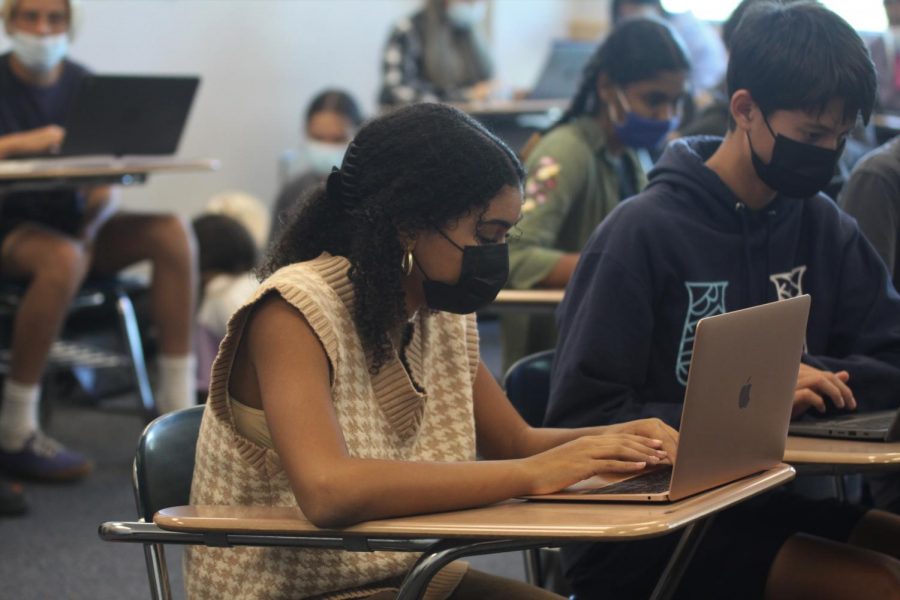Governor Newsom Signs Ethnic Studies Mandate for High School Graduation in California
December 14, 2021
California has become the first state to require a semester of Ethnic Studies as a high school graduation requirement beginning with the class of 2030. Gov. Gavin Newsom signed Assembly Bill 101 on Oct. 8, providing a statewide model curriculum to support this mandate for the 1.7 million students in public and charter schools to earn a high school diploma.
The successful passage of AB 101 followed Gov. Newsom’s 2020 veto of a draft curriculum that has since been rewritten to ensure that it is without bias and bigotry and appropriate for all students. According to EdSource, California high schools will receive a straight apportionment of $50 million from the 2021-2022 state budget to develop their own curriculum with approval from their local governing bodies. Using the state model curriculum—which includes thirty-three sample lessons covering African American, Asian American, Latino and Native American studies as a guide—each school district can adapt it to reflect their community’s demographics. The required ethnic class needs to be available in course offerings starting in the 2025-26 academic year.
To reflect California’s highly diverse student population, Gov. Newsom expressed his ultimate goal for AB 101 in his signing message.
“Students deserve to see themselves in their studies, and they must understand our nation’s full history if we expect them to one day build a more just society,” Gov. Newsom said.
Students who share an interest in ethnic studies echo similar sentiments.
“As someone who has taken a Race and Ethnics Studies class at a local college, what I have learned opened my eyes to existing disparities which I, as a relatively sheltered middle-class American, would have little exposure to without the class,” senior Sophia Wang said.
Having a formal course also affords students the opportunity to learn history from reliable documents.
“School education is the best way to make students learn about the differences between different cultures and their importance. No Facebook research, no Twitter conspiracies, no Google experts,” junior Grace Wang said. “A curriculum and learning experience based on actual historians and solid sources is a solid step to teaching different cultures.”
Students also believe the integrity of the course highly depends on the manner it is taught.
“It is very important to teach the cultures of different ethnicities in a way that’s impartial and purely informational and instructors should definitely avoid letting their own biases bleed into the curriculum and their lectures,” junior Katherine Yu said.
UHS students emphasized the importance of having a standard state curriculum, but flexibility for the local implementation may help ease the transition.
“For example, some districts can opt to integrate the class into an existing history class as an extra unit or allow for summer classes/college classes to be taken for the credit, which will make the requirement more accessible,” Sophia Wang said.
Despite the guardrails incorporated into the state curriculum, it is likely that there will still be opposition from some parents.
“Over the past few weeks, we have seen school boards harassed and attacked for supposedly spreading an agenda with their material,” Grace Wang said. “Parents have literally resorted to requesting books mentioning race be removed from libraries.”
Nevertheless, a more balanced curriculum in the recently passed legislation was developed to address the concerns of the critics of the previous AB 101 draft.
“I’m hopeful that all stakeholders, including parents, students, teachers, [and] administrators will see the benefit of a curriculum that includes everyone,” United States History teacher Mrs. Jane Koch said.
The UHS community generally views learning about their classmates’ cultures as a promising way to foster empathy and understanding among ethnic groups. UHS teachers and students alike welcomed this new requirement as a step in the right direction.
“I would love it if we didn’t necessarily need an ethnic studies requirement because our world and US History classes were more inclusive as a whole,” Koch said. “I think [AB 101] will validate what I already try to do – to incorporate diverse viewpoints, but it will be exciting to get more guidance and get more support on it.”
Since the mandate for the course is not for several years, UHS students can benefit from the elective, Ethnic Studies, currently taught by UHS History teacher Mrs. Ann Campbell.
“Right now, I hope that more people choose to take an elective like ethnic studies because it is so valuable for going out into the world and interacting with different people with an accurate understanding of history,” Koch said.






